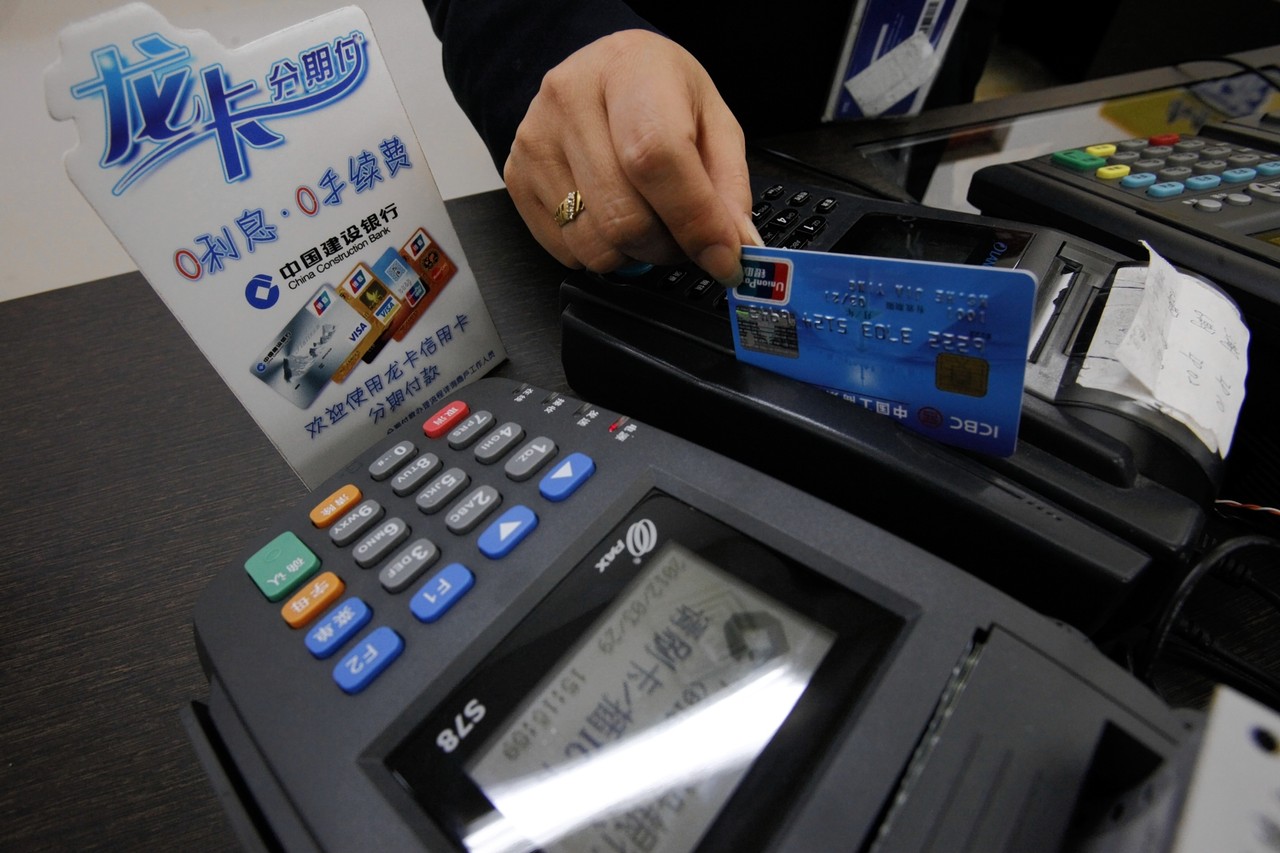
BEIJING—China is taking a step toward easing its grip on credit cards, potentially resolving a long-running trade dispute with the U.S. and allowing foreign companies such as Visa Inc., MasterCard Inc. and other electronic-payment processors to have a greater presence there.
The State Council, the nation’s cabinet, said in a statement on the main government website late Wednesday that qualified domestic and foreign firms can apply to set up bank card-clearing operations, a process that involves settling payments between banks and vendors.
The statement, which said the move is part of efforts to open up China’s financial sector, followed a cabinet meeting led by Premier Li Keqiang . It didn’t set out a timeline or provide further details, so the speed and scope of any move to open up China’s credit-card market isn’t clear.
Currently, China UnionPay Co. has a near monopoly on processing and clearing yuan-denominated payments made via bank cards and credit cards. The state-controlled firm has close ties to China’s central bank. In an email, a spokesman from China UnionPay said that the company “welcomes competition” and “supports and will implement the decision to open up access to the bank card clearing market.”
Plastic from Visa, MasterCard and American Express Co. already is accepted in China and those companies process transactions there if they are made on cards that are issued by banks from another country. But Chinese banks aren’t able to issue cards with U.S. card processors unless they also are branded with China UnionPay.
Visa, MasterCard, American Express and other foreign firms have been jockeying for a greater share of that business for years. China is still fostering a nascent consumer class, and credit cards are widely believed to have tremendous room to grow.
The move came as a surprise to card executives in the U.S., according to a person familiar with the situation.
Although the U.S. players would welcome the chance to enter the Chinese market, it likely will take some time for that to happen. Terms of any acceptance by U.S. companies haven’t been disclosed, such as whether firms such as Visa and MasterCard would have to apply for a license in China.
A spokeswoman for MasterCard said in an email that the company welcomes the development, and that it believes “open payment systems provide growth by fostering innovation.”
In an earnings call, Visa Chief Executive Charles Scharf also welcomed China’s move and said “we look forward to seeing the specific details and working with the people within China.”
A MasterCard spokesman also noted the lack of details. “We look forward to the day when we can compete for domestic business in China,” he said.
American Express declined to comment.
There was 1.84 trillion yuan ($300.9 billion) of debt outstanding on China’s credit cards at the end of 2013, up nearly 62% from a year earlier, according to a report from the People’s Bank of China. Domestic banks issued 391 million credit cards, up 18%.
U.S. business groups expressed some skepticism about the proposed changes, noting they have been pressing for a while to open China’s card markets. “We are encouraged that there are signals,” said Myron Brilliant, executive vice president at the U.S. Chamber of Commerce in Washington. “Until we see what that means, until we see proof of it, until we see time frames, we don’t have a deal.”
The promise of growth is at the root of the trade dispute involving Chinese credit cards. Two years ago, a World Trade Organization panel found that China’s rules governing access to its domestic electronic-payments market don’t provide equal treatment to foreign credit-card and debit-card issuers, although it stopped short of labeling UnionPay a monopoly. China said at the time it would assess the decision but has been slow to change its market-access rules in response.
“We look forward to the issuance of those specific provisions to implement the State Council’s statement in a manner that is consistent with the WTO’s decision,” said Matt McAlvanah, a spokesman for U.S. Trade Representative Mike Froman. “The United States remains committed to ensuring that China opens the electronic payment services sector to foreign companies on fair and open terms.”
Meanwhile, UnionPay has grown increasingly strong and is potentially in a position to withstand the imminent arrival of competition from overseas. It has expanded globally, and its tricolor logo has become more common on ATMs and sales counters around the globe, meaning Chinese consumers can use the same card at home and abroad.
At the same time, the business of electronic payments in China is shifting drastically. Chinese Internet giants have branched out into electronic payments—particularly in mobile services such as payment apps—in a potential challenge to UnionPay and the rest of China’s state-dominated banking sector.
Growing services provided by e-commerce giant Alibaba Group Holding Ltd. and Internet conglomerate Tencent Holdings Ltd. allow Chinese consumers to buy goods online, store cash and even send funds to one another, often with the touch of a finger to a smartphone.
Earlier this week, at the WSJD Live global technology conference, Alibaba Executive Chairman Jack Ma said he was interested in teaming up with Apple Inc. to explore electronic payments. The statement came after Apple added more payment capabilities to its newest iPhones.
China’s central bank has at times moved against the upstarts in ways that seem to benefit UnionPay. In March, it ordered the suspension of online payments using QR codes and virtual credit cards in smartphone-payment systems, two payment methods being pioneered domestically by Alibaba and Tencent.
As the credit-card companies have eyed China, Visa has provided training and technical advice to Chinese officials trying to build a domestic payments system. In 2008, it was one of the main sponsors of the Beijing Olympics—despite the fact that the only business it got from Chinese customers was when they went abroad and spent dollars and other foreign currencies.
China’s State Council also said in its statement that foreign institutions that provide only cross-border transaction-clearing services don’t need to set up branches in China.
by Dinny McMahon
—Grace Zhu and William Mauldin contributed to this article.
SOURCE: The Wall Street Journal, 30 October 2014.



